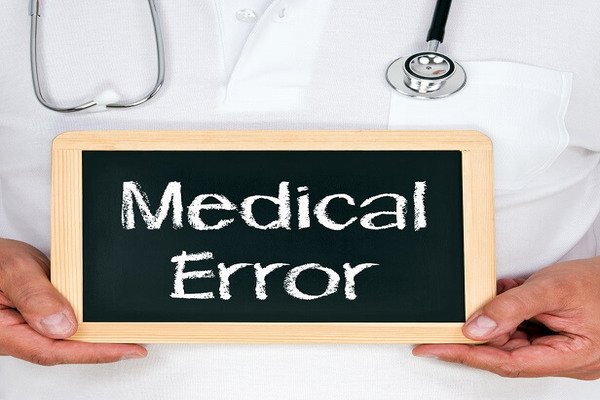
Free Consultation(203) 447-0000

Free Consultation(203) 447-0000

Malpractice is the third-leading cause of death in the United States, and misdiagnosis is by far the most common form of malpractice committed by doctors in Connecticut and other states across the country. This includes misdiagnosis of all types of cancers. Of course, cancer does not have to be fatal to have devastating impacts, and a misdiagnosis of any type of cancer at any stage can lead to life-altering health consequences, financial costs, and non-financial losses.
Due to the prevalence of cancer misdiagnoses in the United States, there is a fairly well-established body of law around cancer misdiagnosis claims. Malpractice insurance companies know to expect these claims on a routine basis, and lawyers like ours have developed effective strategies for proving patients’ misdiagnoses and recovering their (or their families’) losses. In this article, we will provide an overview of:
Cancer misdiagnosis claims are unique because they involve complex medical and legal issues. As a patient or family member, understanding your legal rights can be complicated, but it is also extremely important. The more you know about your (or your loved one’s) condition, and the better you understand what is required to establish liability for malpractice, the more comfortable you will feel as you move forward with seeking just compensation.
With this in mind, here is some of the key information you need to know:
There are numerous different types of cancer, and all types of cancer have the potential to be misdiagnosed. However, some types are more common than others, and misdiagnoses of certain types of cancer are more common as well. For example, according to various medical sources, the following are among the most common and most-commonly-misdiagnosed types of cancer:
In many cases, these cancers are among the most commonly misdiagnosed, simply because they are also among the most common cancers. The more patients who get sick, the greater the number of patients who will be misdiagnosed. However, as we discuss below, many of these forms of cancer – and others – present particular risks for misdiagnosis. However, rather than providing doctors with an excuse for misreading their patients’ symptoms or failing to order necessary tests, if anything, this means that doctors need to be even more vigilant when diagnosing patients who present with symptoms that are potentially indicative of both cancer and another medical condition.
Cancer misdiagnoses happen for several different reasons. A joint study conducted by the National Coalition on Health Care (NCHC) and Best Doctors, Inc. concluded that the following were among the leading causes of cancer misdiagnoses in the United States:
In addition to these types of issues, medical negligence is a factor in a significant number of cancer misdiagnosis cases as well. Simply put, doctors make mistakes just like everyone else. From making unsound medical judgments to overlooking signs or symptoms as a result of rushing or being fatigued, all types of avoidable mistakes lead to cancer misdiagnoses every year. Common forms of malpractice that can (and do) result in cancer misdiagnoses include:
Additionally, certain misdiagnosis risks are specific to individual types of cancer. For example, about lung cancer, the New Hope Medical Center notes that “since this cancer usually manifests in coughing, wheezing, and shortness of breath, it can be misdiagnosed with respiratory conditions such as pneumonia or tuberculosis.” It also notes that colorectal and pancreatic cancer are commonly misdiagnosed as irritable bowel syndrome and other less-severe medical conditions due to the similarity of symptoms between these cancers and these other conditions.
When it comes to filing a claim for malpractice about a cancer misdiagnosis, the specific cause of the patient’s misdiagnosis is not a determining factor in establishing the patient’s (or the family’s) right to financial compensation. All forms of malpractice provide patients and families with the same legal rights; and, if you can prove malpractice, then you can seek to recover your (or your family’s) losses, regardless of the specific type of malpractice at issue.

While patients and families can recover financial compensation, regardless of the specific type of malpractice that leads to a cancer misdiagnosis, it is still necessary to prove the specific cause of the patient’s misdiagnosis to establish liability. There are several potential ways to prove not only (i) that cancer was not properly diagnosed, but also (ii) that the patient’s misdiagnosis was the result of malpractice.
Once a patient’s cancer has been diagnosed, it is possible to trace the origins of the patient’s cancer based upon its progression. By working backward from what is now known, it is generally possible to determine when the patient’s cancer developed – and thus when it was capable of being diagnosed. If the patient received medical care after this point in time, and if his or her cancer was not diagnosed despite sufficient evidence being available to his or her treating physicians, then this will generally point to a misdiagnosis. This is true whether the patient was diagnosed with another condition or he or she was not diagnosed at all.
To prove malpractice, it is necessary to prove (i) the existence of a doctor-patient relationship, and (ii) that the patient’s doctor failed to adhere to the prevailing standard of medical care. The existence of a doctor-patient relationship is generally fairly easy to prove through the patient’s medical records, so the focus of the analysis is usually on whether the patient’s doctor provided an adequate standard of care.
When it comes to diagnosing a patient who is exhibiting signs or symptoms of cancer, there are established medical tests and procedures that can – and should – be used. By reviewing the patient’s medical records, it will often be possible to determine whether his or her doctor did everything necessary to adhere to the standard of care. For example, if the patient’s records indicate that he or she had symptoms that should have resulted in a biopsy and no biopsy was performed, then this may be sufficient to establish malpractice. Likewise, if a biopsy was performed and the patient’s doctor misinterpreted or overlooked key information in the test results, this could establish a malpractice claim as well. These are just two examples of numerous possible scenarios.
In addition to proving that a cancer misdiagnosis was the result of malpractice, to file a successful claim, you also need to be able to prove the costs of your (or your loved one’s) doctor’s mistake. This includes both financial and non-financial costs, and it includes both costs that you or your family has incurred to date as well as costs that you or your family is reasonably likely to incur in the future.
Proving the costs of cancer misdiagnosis is not a straightforward process. In addition to all past and future medical expenses, the damages available in cancer misdiagnosis cases also include loss of income, loss of earning capacity, pain and suffering, loss of enjoyment of life, and various other types of non-financial losses. To calculate your (or your family’s) losses accurately, you will need to work with an experienced malpractice attorney.
If you have a cancer misdiagnosis claim, and if you hire an experienced malpractice attorney to represent you or your family, what can you expect as your case progresses? First, your attorney will work closely with you to understand your situation, and your attorney will also need to review your (or your loved one’s) medical records in detail. Once your attorney has a clear understanding of what happened and has begun to assess the short-term and long-term consequences, then he or she can move forward with pursuing a claim on your (or your family’s) behalf.
In most cases, cancer misdiagnosis claims are resolved through settlements with doctors’ and hospitals’ malpractice insurers. If liability in your case is clear, then your attorney may be able to negotiate a favorable settlement without going to court. However, if the malpractice insurer involved in your case is not willing to settle, then your attorney will need to take your case to trial to secure the financial compensation you and your loved ones deserve.
Are you struggling to cope with the effects of a cancer misdiagnosis? If so, we encourage you to speak with one of our highly-experienced malpractice attorneys in confidence. For a free, no-obligation consultation, call us directly or request an appointment online now.
Berkowitz Hanna
